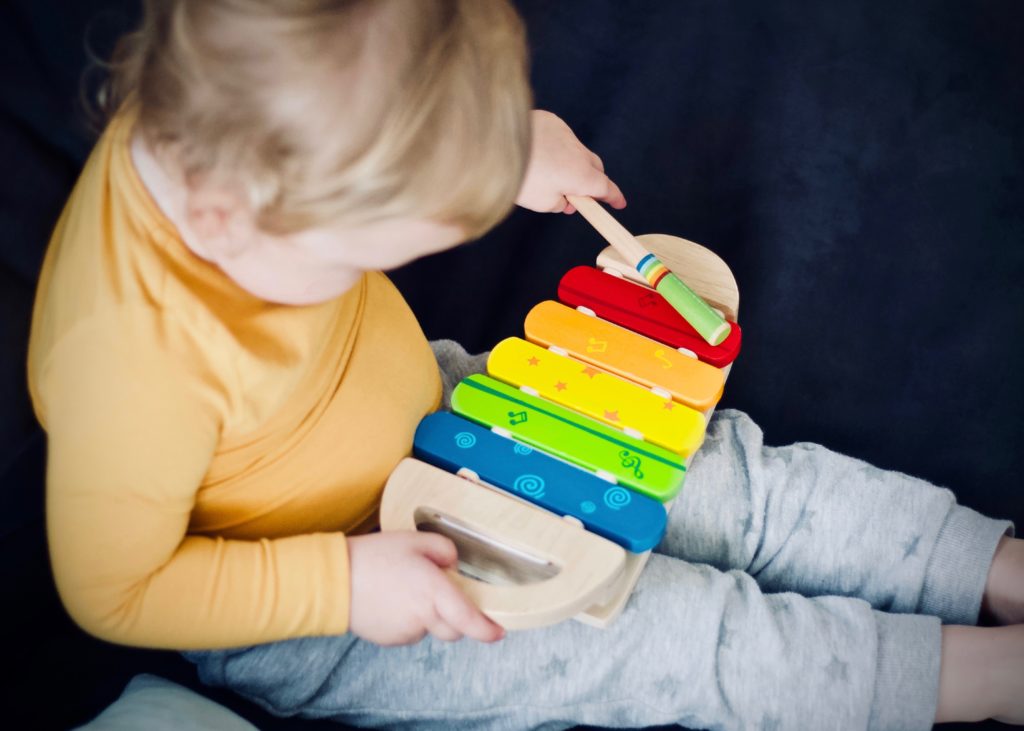
Have you ever noticed that kids always seem to be making some sort of noise? Whether it’s humming, whistling, singing, or drumming, music is part of childhood at the most basic level. So often I hear from parents questions like “When can I start piano lessons?” “How can I help her in music?” “Should he try for a solo?”.
Before we get to some practical answers to those types of questions, let’s start with the basics. Research over the past 20 years has shown that a child’s musical aptitude and abilities starts to solidify around the third grade. Before that, children have very pliable brains and ears. Not only do children develop their aptitude for music by the third grade, but often prefer styles of music that they hear early on in their development. All in all, early childhood is a time for students to explore and develop their musical tastes, abilities, and preferences.
So, how can we, as parents, develop our little musicians into the performers that we know they can be?
1. Sing with your child.
It might sound obvious, but children watch your every move. They notice every little thing you do so that they can explore and emulate what it’s like to be an adult. In the same way, your children will watch you as you listen to music, whether you hum or whistle along with pandora, or drum on the steering wheel as you drive them home from school. Sing along with music, and your children will develop their voice as they join in.
2. Listen to diverse styles–even if they’re not your favorite.
Children tend to love hearing the same book read to them over and over again. My son would love to hear Goodnight Gorilla every time we sit down to read, but it’s good for him to hear many different stories read to him each day instead of the same book every time. Musical styles can be the same way for children. When you listen to music with your children, listen to many different styles. This will help them learn to appreciate different styles of music and the way that different singers, composers, and arrangers express themselves through music.
3. Praise and encourage their participation.
Our students at FCS have plenty of opportunities for performance starting in preschool. It’s so important after these events to encourage your students for their performance–whether they did a great job or whether they need to improve. Students need to be rewarded with praise and encouragement for their work and vulnerability in performance.
4. Reading before lessons.
One of the most common questions from parents is “When can my child start private (voice, piano, instrument) lessons?” Most often the answer to this question is sometime after they become fluent readers. Students will need to be able to read their own instructions in their music books from their lessons. This will allow them to be more successful on their instrument over the long-term.
5. Listen to other kids sing.
One of the main factors in musical success as a child is to be able to access the “head voice.” “Head voice” is the crystal-clear voice that you think of when you hear a choir like the “Vienna Boys Choir” or other professional children’s ensemble. For children to learn to access this voice, they need to be able to hear children sing. This means that children will be most successful in learning to sing if they listen to other children model good singing.
If you follow the advice above, you’ll be well on your way to encouraging your child to become the best musician they can be.

By: Nate Jones, FCS Elementary Music Director
 Christian School
Christian School